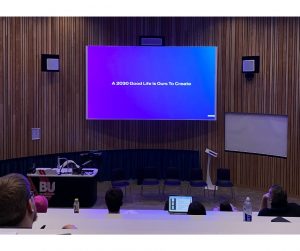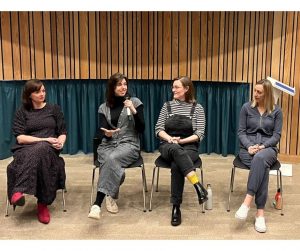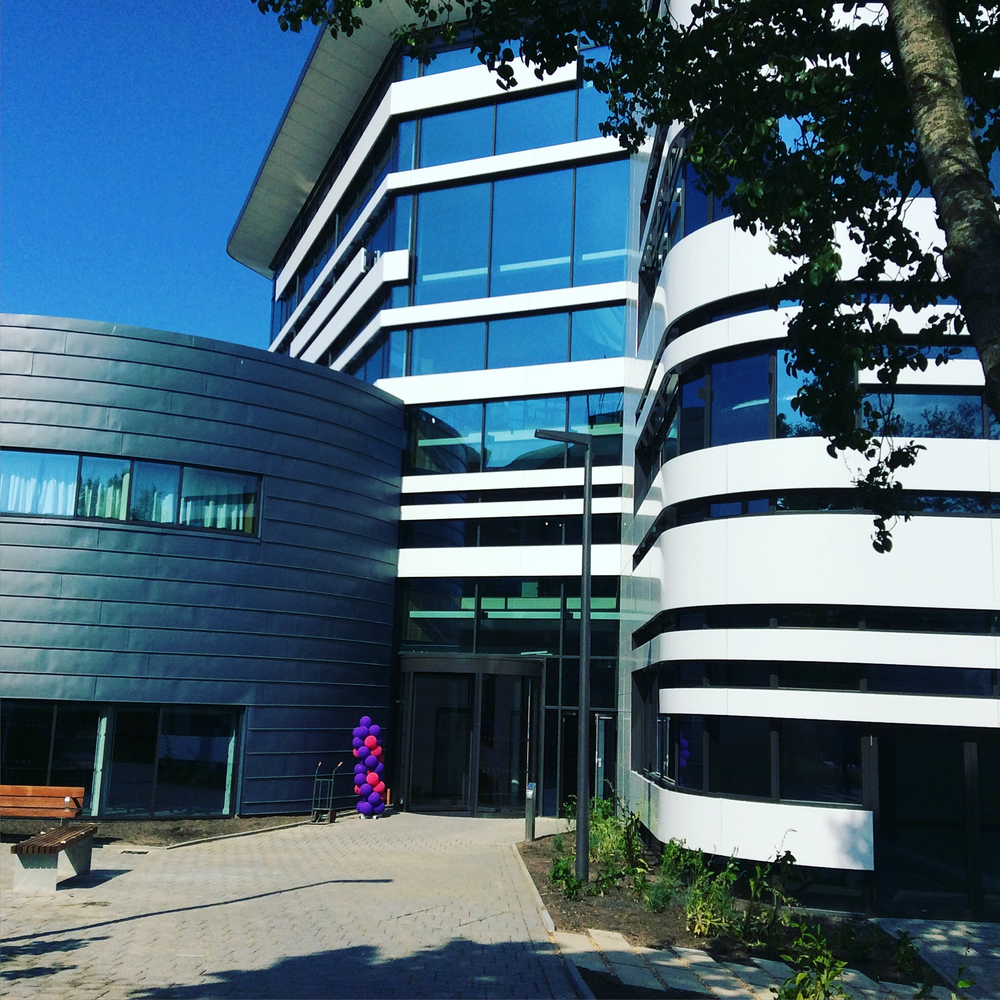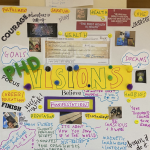 Produced by Guest blogger
Produced by Guest blogger
 This is a guest blog post written by MA Advertising student Manya Deora.
This is a guest blog post written by MA Advertising student Manya Deora.
I recently attended a panel discussion hosted by the Media and Communications department at Bournemouth University. The topics presented were discussing the advertising, marketing, and communications industries and if or how they are consciously or unconsciously fostering a culture of consumerism on their client’s behalf, which is making the climate crisis worse than ever.
On the discussion panel were Ally Kingston (Purpose Disruptors), Annie Tallboys (Seismic), Caitlin Hicks (Nuevo) and Dr Becky Jenkins (Faculty of Media & Communication, BU). The event began with a screening of a short 15-minute documentary, “Good Life 2030”, created by the Purpose Disruptors.
Disruptors.
The documentary revolved around the lines of ‘What will be a good life in 2030’. I found it intense, educational, and thought-provoking, and it left the students, business owners, digital marketers, and advertisers in the room with a big question.
Does the Advertising, Marketing and Communications industry consider itself a part of the problem? And if so, how might it also become a part of the solution?
The event was an eye-opener to other Master’s students like me who are just about to enter the professional world. The key highlight of the discussion was how Advertising has undoubtedly driven the wants and desires of consumers and urges them to satisfy such desires by consuming more and more objects. Agencies need to start thinking of people as citizens rather than consumers. But again, if the ad industry is all about generating wants, how do you balance that?
The discussion brought up a few challenges from agencies viewpoint and the panelist talked about how when a brand shows concern for the environment, they frequently get called out for greenwashing. This leads to the practice of “green hushing,” in which companies are now keeping their sustainability pledges under wraps to avoid being penalised for ignoring them or addressing them too late.
The panelists agreed to the fact that advertisers have a responsibility and the power to foster change. They further added, the good thing is that change is coming about. Earlier marketing was often deemed about making the brand famous, but now clients are coming and saying they want to be humble, honest and do good for people and society. Shifting the culture of wants vs. necessities would change over time, but for the time being, advertisers must consider what they can do from an agency standpoint and ask, “How do we deliver the correct strategies that take these things into account?”
The panel opened my eyes to the role which universities have to play in educating future professionals, such as incorporating sustainability in the curriculum, catering, energy and so on. See how BU is managing its impact on the world around it.
 The climate crisis is such a BIG issue that the event barely even scratched the surface of. The purpose of the event, according to the host Matthew Desmier (Faculty of Media & Communications), was to make the conversation more real and show that other people are thinking about these things too. The event concluded that there is an obvious need to have more conversations like this that can lead to tangible measures. I am glad that BU is always eager to arrange such events that not only promote conversation but also provide the participants and students with the chance to build networks that can aid in achieving such objectives.
The climate crisis is such a BIG issue that the event barely even scratched the surface of. The purpose of the event, according to the host Matthew Desmier (Faculty of Media & Communications), was to make the conversation more real and show that other people are thinking about these things too. The event concluded that there is an obvious need to have more conversations like this that can lead to tangible measures. I am glad that BU is always eager to arrange such events that not only promote conversation but also provide the participants and students with the chance to build networks that can aid in achieving such objectives.

 From UG Tourism to PG Marketing
From UG Tourism to PG Marketing My role on the Climate Action Student Team (CAST)
My role on the Climate Action Student Team (CAST) Why I loved EDfest, the Business School’s Experience & Development festival
Why I loved EDfest, the Business School’s Experience & Development festival Kim Machipisa’s BA (Hons) Marketing Communications placement experience
Kim Machipisa’s BA (Hons) Marketing Communications placement experience








